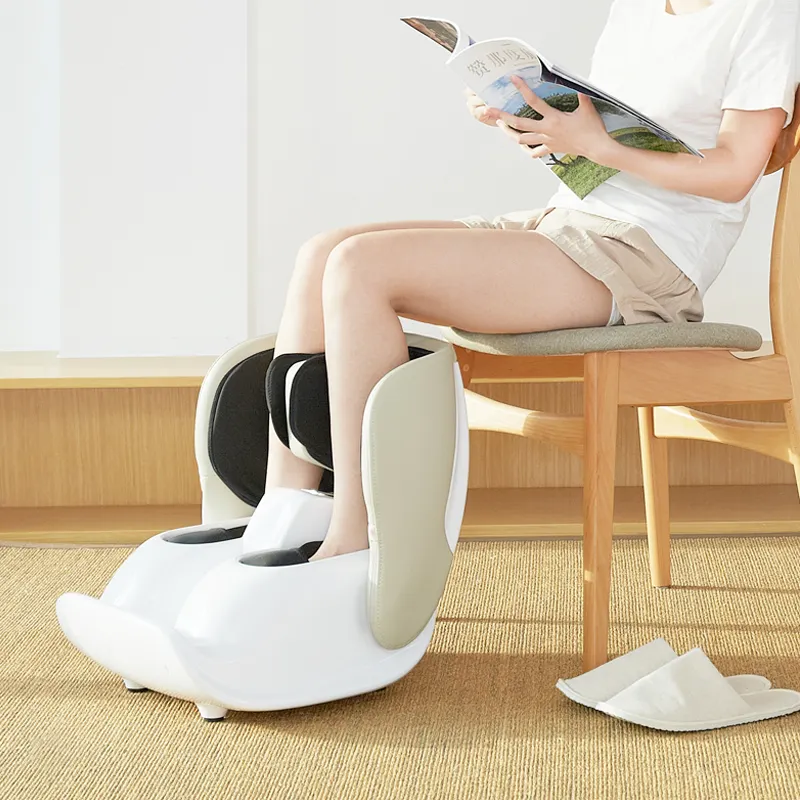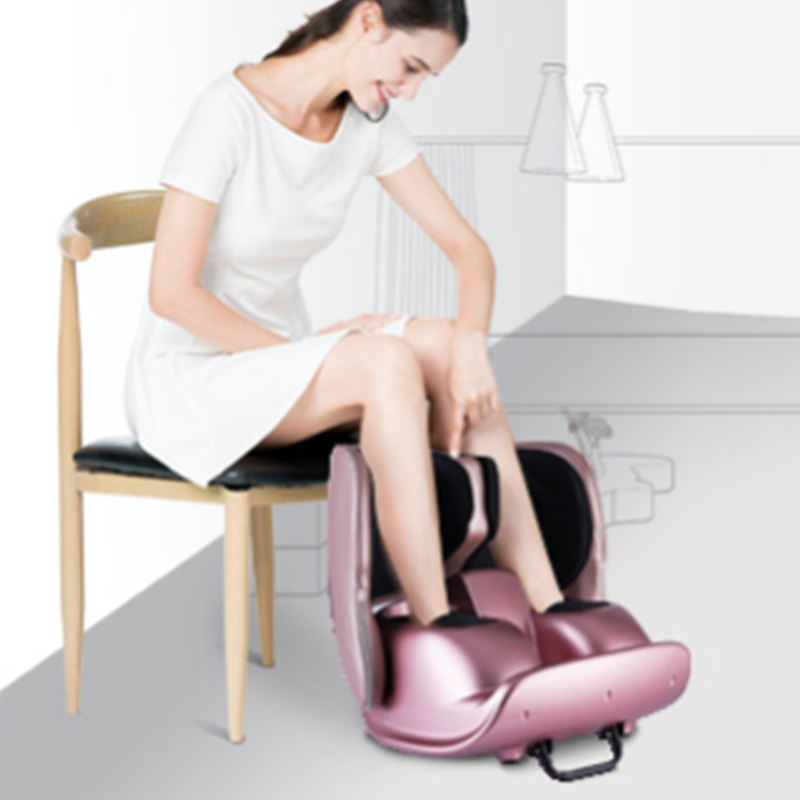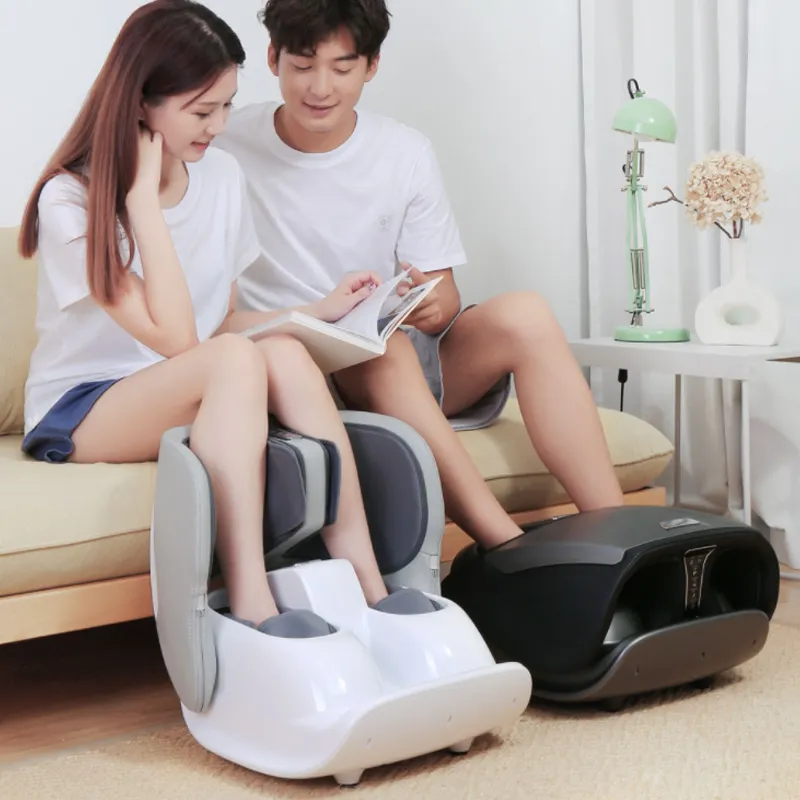

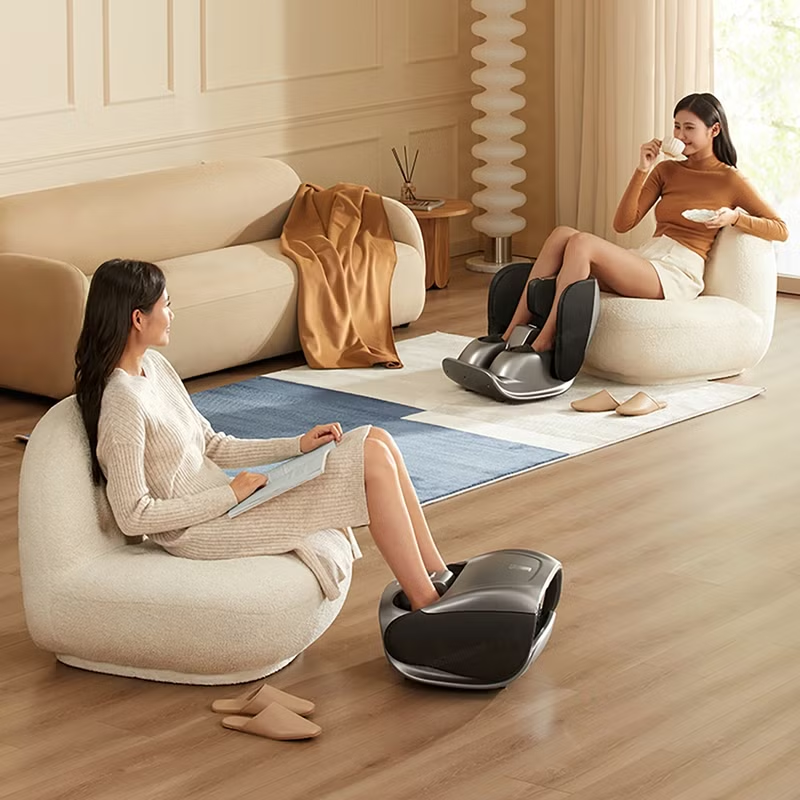
Foot massagers are popular devices designed to soothe tired feet, enhance circulation, and provide relaxation after a long day. These devices have gained popularity due to their ease of use and the many benefits they offer, from reducing stress to alleviating pain in the feet and legs. Whether you spend long hours on your feet or just want to unwind after a busy day, a foot massager can become a welcome addition to your self-care routine.
A foot massager is a device specifically designed to provide comfort, relaxation, and therapeutic benefits to the feet. Typically, these devices use a combination of techniques, such as kneading, rolling, air compression, and heat, to provide relief to the feet, lower legs, and sometimes even the calves. They come in a variety of models ranging from simple manual rollers to advanced electric massagers with multiple settings.
Foot massagers work by mimicking the techniques used in traditional massage, such as reflexology, shiatsu, or Swedish massage. Depending on the type, they can apply pressure, knead, or use air compression to target specific areas of the foot. Some models even have heated pads that simulate a warm, soothing sensation, enhancing the overall experience.
Foot massagers offer numerous health benefits, making them more than just a luxury item. Here are some of the key ways foot massagers contribute to overall well-being:
One of the most notable benefits of foot massagers is their ability to improve blood circulation. The pressure and kneading motions stimulate blood flow to the feet and legs, which can help reduce swelling and prevent varicose veins. Enhanced circulation is especially important for individuals who spend long hours sitting or standing, as it helps combat poor circulation and promotes better overall health.
Foot massagers are especially helpful for individuals suffering from foot pain, plantar fasciitis, and other foot-related conditions. The kneading action can relieve tension and reduce discomfort in the arches, heels, and toes. Many foot massagers are designed to target specific pressure points, helping to alleviate chronic pain or discomfort caused by conditions like arthritis or neuropathy.
Using a foot massager regularly can significantly reduce stress levels. Foot massages stimulate the nervous system and promote the release of endorphins, the body's natural pain relievers. This creates a feeling of relaxation and well-being. Many people find that regular foot massages help them unwind after a stressful day and promote a sense of calm.
There are various types of foot massagers available, each offering a different set of features. Below are some of the most common types:
Manual foot massagers typically involve using rollers or handheld devices that require the user to apply pressure or move the device themselves. These tend to be more affordable and portable but may not provide the same level of customization as electric models. Electric foot massagers, on the other hand, come with multiple settings for intensity, speed, and modes, providing a more hands-free experience.
Shiatsu foot massagers are designed to replicate the traditional Japanese technique of shiatsu massage, which uses deep pressure and kneading to stimulate the pressure points in the feet. These massagers typically focus on the foot’s arch, heels, and toes, offering targeted relief for pain and tension.
Air compression foot massagers use inflatable airbags to provide gentle pressure to the feet, simulating a squeezing motion. These massagers are ideal for individuals who prefer a lighter, less intense massage but still want the benefits of improved circulation and relaxation.
When selecting a foot massager, consider the following features to enhance your experience:
Look for a foot massager that offers adjustable intensity settings. Being able to control the pressure and speed ensures that you can tailor the massage to your comfort level and needs. Some models even come with multiple massage modes, such as a soothing or more intense setting.
Many foot massagers come with a heat function that adds an extra layer of relaxation. Heat can help relieve sore muscles, improve circulation, and create a more comforting massage experience.
A foot massager with an ergonomic design ensures that it fits comfortably around the feet and provides maximum comfort during use. Look for massagers with foot wells that are large enough to accommodate different foot sizes, as well as ones that can easily be adjusted for your specific needs.
Certain foot massagers are designed to help alleviate specific foot-related conditions:
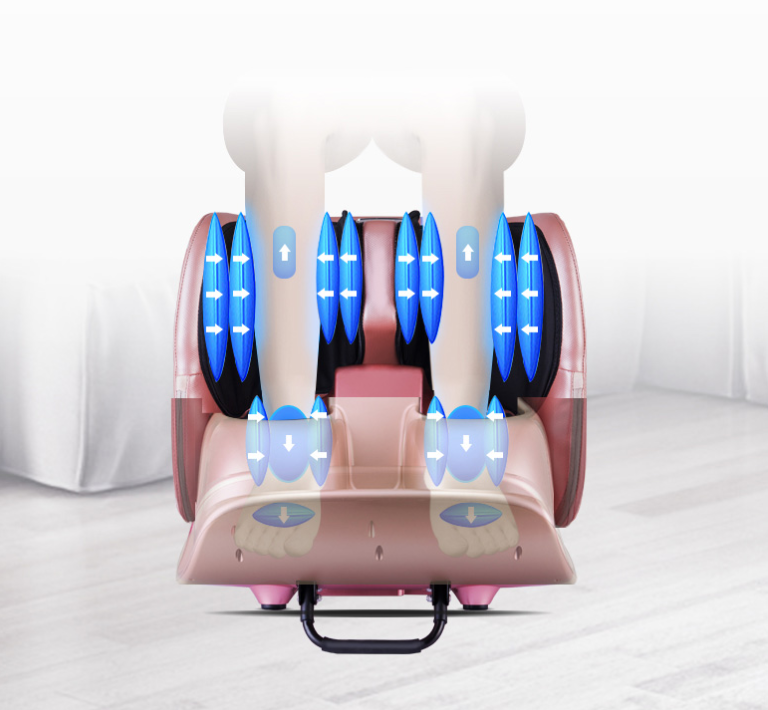
People suffering from plantar fasciitis or heel pain can benefit from a foot massager that targets the arch and heel area. These devices apply pressure in the right places to relieve tension in the fascia and muscles, promoting healing and reducing pain.
Individuals with poor circulation or swollen feet can benefit from foot massagers that use air compression or kneading techniques. These features help stimulate blood flow, reduce swelling, and prevent discomfort caused by fluid retention.
For maximum benefits, follow these best practices when using your foot massager:
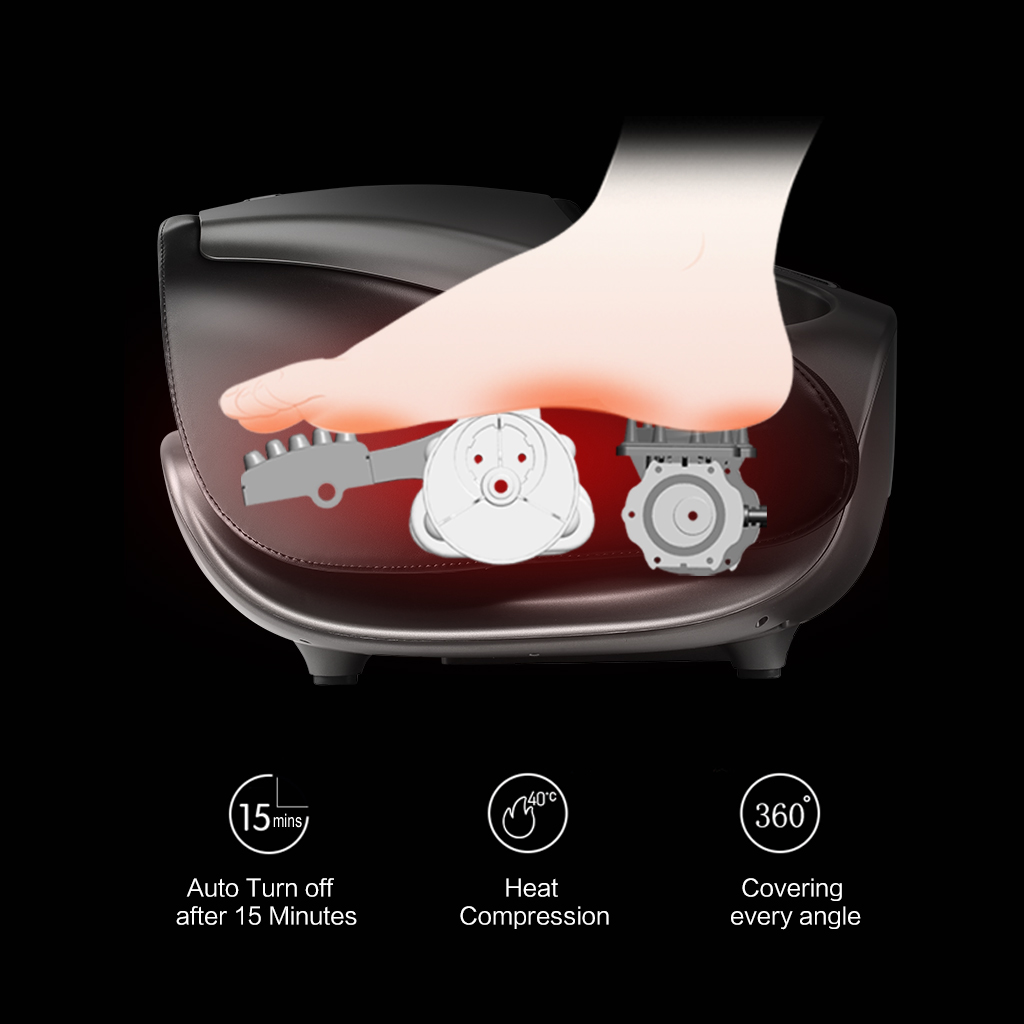
Foot reflexology is based on the principle that certain areas of the foot correspond to different organs and systems in the body. By applying pressure to these areas, foot massagers stimulate reflex points that can help alleviate stress and promote overall health.
Foot massagers help relax the body by promoting the release of endorphins, which are known to reduce anxiety and create a sense of well-being. The repetitive motion of a foot massage can also calm the nervous system, reducing tension and promoting mental clarity.
Foot massagers are available in a wide range of prices, from affordable manual models to more expensive, feature-packed electric devices. Consider how often you plan to use the device and whether you need advanced features before making your purchase.
If space is a concern, consider a compact model that is easy to store and transport. Some foot massagers are lightweight and designed for easy portability, making them ideal for travel or for use in smaller spaces. On the other hand, larger, more feature-rich models may require more storage space but offer a more robust massage experience.
Before purchasing a foot massager, it's wise to read reviews and consider the reputation of the brand. User feedback can provide valuable insights into the durability, effectiveness, and overall user experience of a product. Opting for well-known brands with positive reviews often ensures you're getting a reliable and high-quality product.
There is a growing body of research suggesting that a foot massage before bed can improve sleep quality. By reducing stress, promoting relaxation, and stimulating the release of sleep-inducing hormones like serotonin, foot massages help prepare the body for rest. If you struggle with insomnia or have trouble unwinding at the end of the day, a foot massager can be a simple and effective tool to enhance your nightly routine.
Many people find that using a foot massager in the evening helps them transition from a busy day to a more restful state. The soothing motions help calm the mind, ease tension, and prepare the body for a good night's sleep. Pairing foot massage with calming activities like reading or listening to relaxing music can significantly improve sleep quality.
In addition to using a foot massager, consider these additional tips to maintain healthy feet and enhance your relaxation experience:
A regular foot care routine can help maintain the health of your feet and prevent common issues such as dry skin, calluses, or ingrown toenails. Moisturizing your feet after a foot massage can keep the skin soft and supple, while regular trimming of toenails can prevent discomfort. Additionally, exfoliating the feet helps remove dead skin cells and promotes better circulation.
Stretching exercises for the feet and calves can help alleviate tension and improve flexibility. For example, stretching the toes and calves can relieve tightness, particularly for individuals who spend a lot of time standing or walking. Staying hydrated is also essential for maintaining healthy feet, as dehydration can lead to swelling and discomfort.
Foot massagers are generally safe for most people, but individuals with certain health conditions, such as diabetes or peripheral neuropathy, should consult their doctor before using a foot massager. Those with serious foot injuries or fractures should also avoid massaging the affected area until fully healed.
For the best results, it's recommended to use a foot massager 3–4 times a week. However, if you're experiencing pain or discomfort, you may benefit from using it daily. Be sure to follow the manufacturer's guidelines regarding usage times to avoid overuse, which may lead to discomfort or muscle strain.
Yes, foot massagers that target the arches and heels can help alleviate the pain associated with plantar fasciitis. They work by applying pressure to specific areas of the foot, which helps relax the fascia and reduce inflammation. However, foot massagers should be used in combination with other treatments, such as stretching and appropriate footwear, for optimal results.
Most foot massagers are designed for use in sessions lasting 15–30 minutes. It's important not to overdo it, as prolonged use can lead to discomfort or muscle fatigue. Start with shorter sessions and gradually increase the duration as needed.
While foot massagers are generally safe, some users may experience mild discomfort or soreness, especially if they have sensitive feet or use the device on high intensity. If you experience pain, stop using the device and consult a healthcare professional if necessary.
Yes! Foot massagers have been shown to reduce stress and anxiety by stimulating relaxation responses in the body. The physical relief they provide can help calm the nervous system, promote emotional well-being, and enhance overall mood. Many users report feeling more relaxed and less anxious after a foot massage session.
